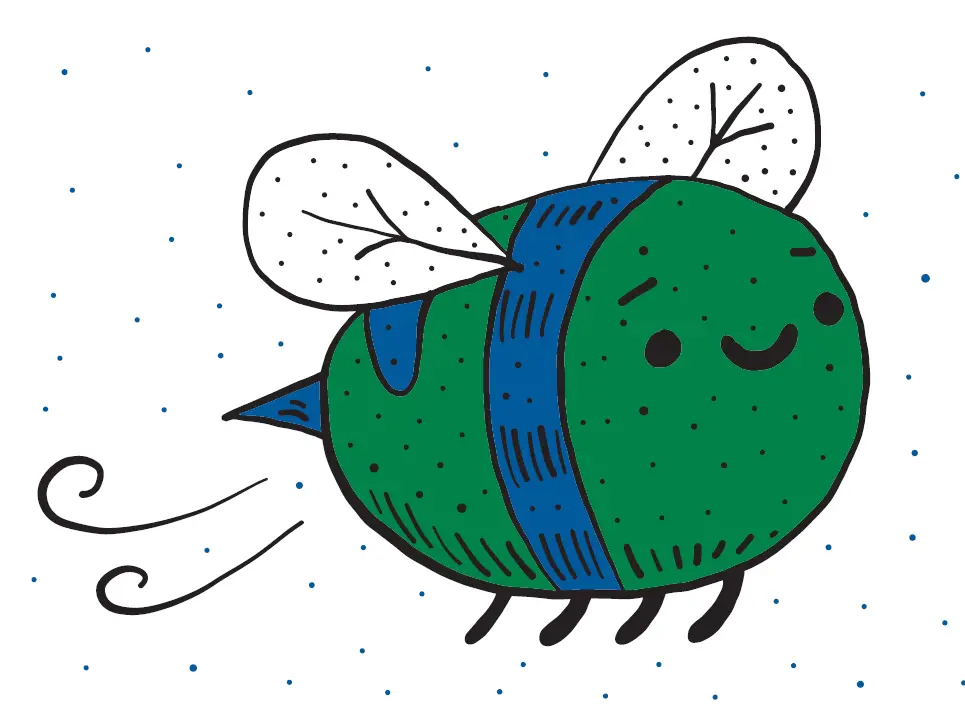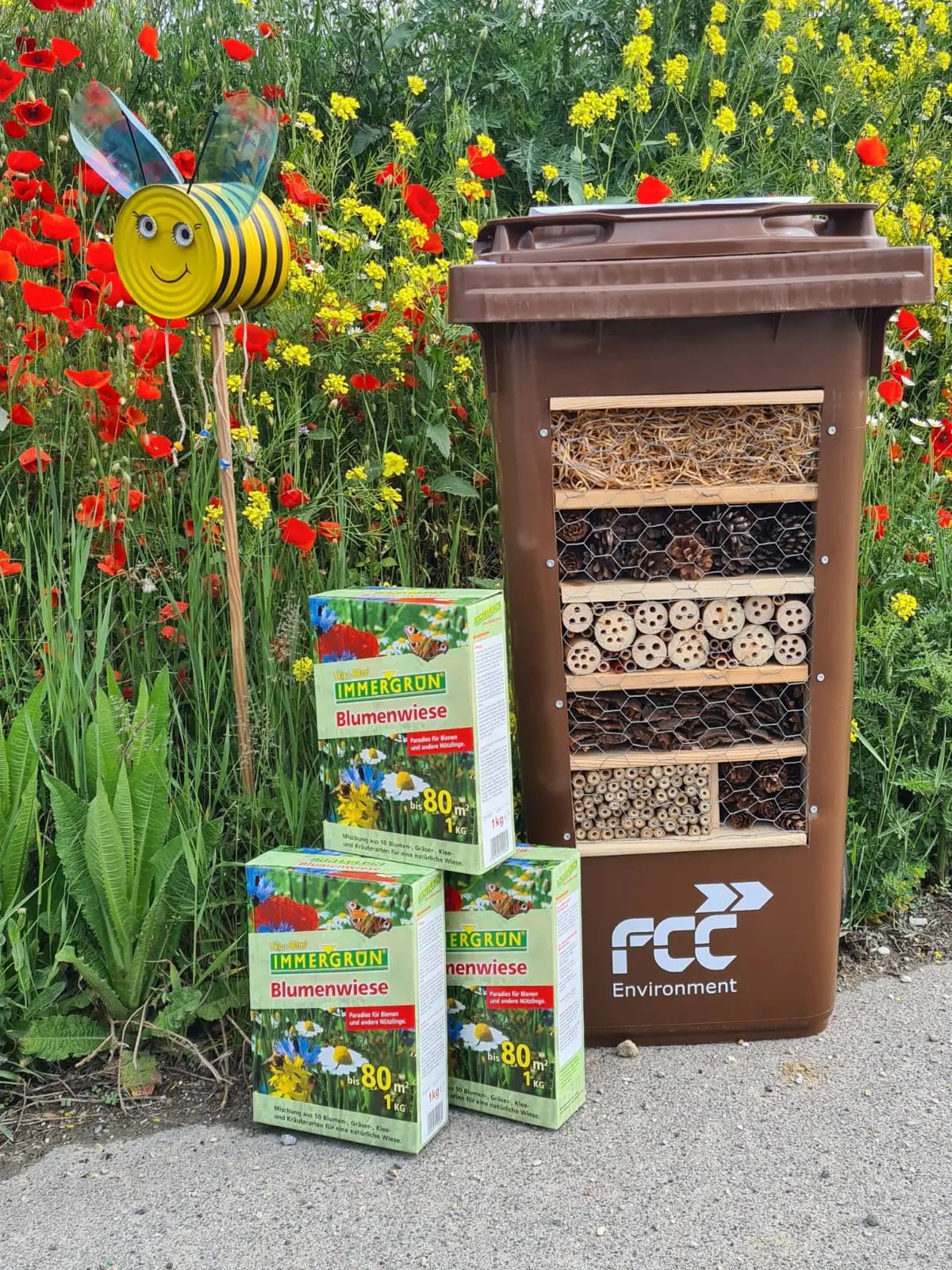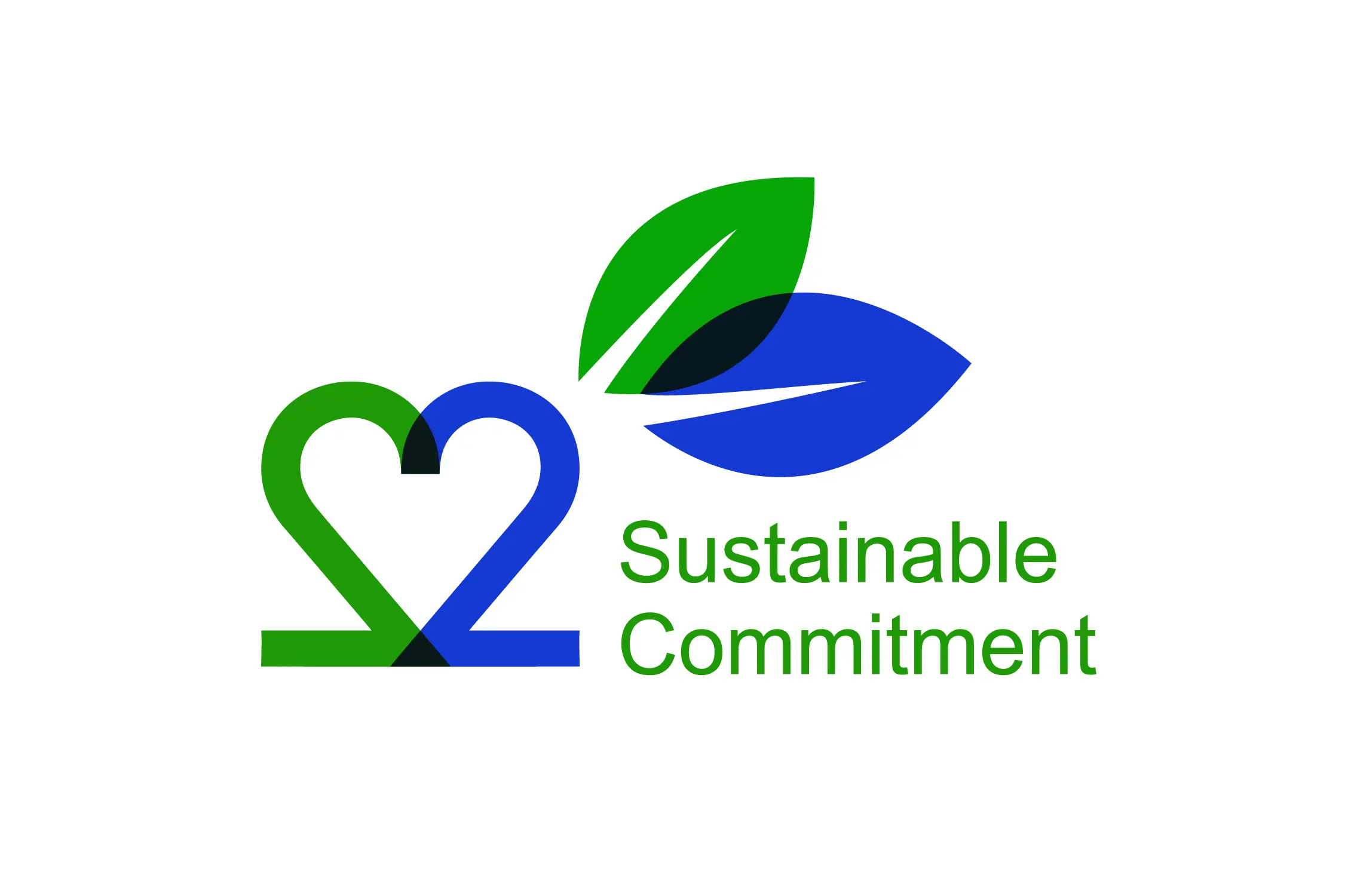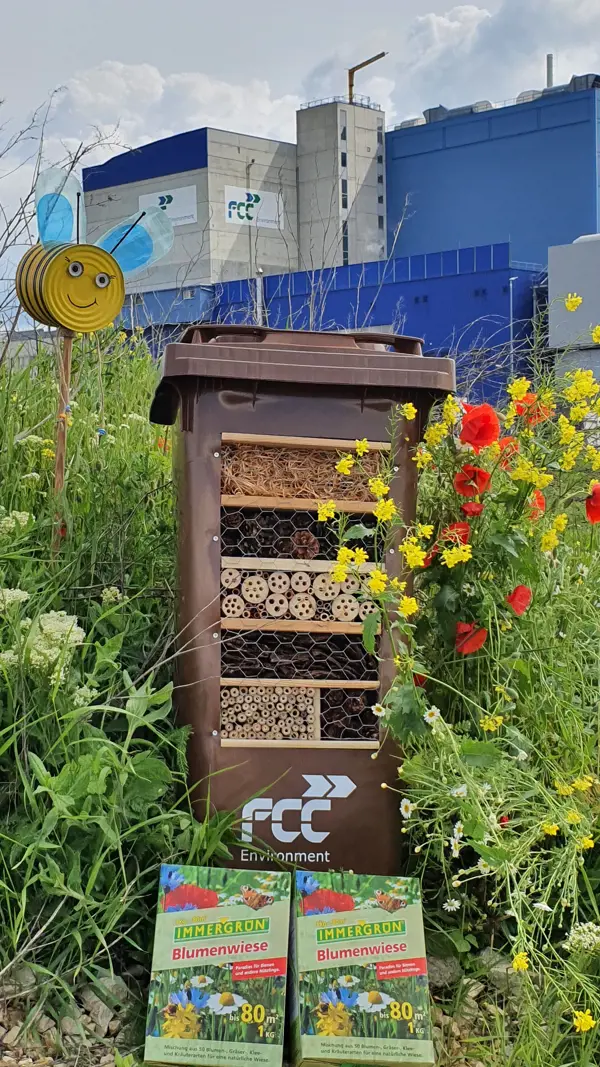FCC Environment CEE celebrates ‚World Bee Day‘ - by creating the first bee pasture at our Waste-to-Energy Plant Complex in Zistersdorf
FCC Environment CEE subsidiaries can be found at over 160 sites, in 7 countries - in both big cities and small rural villages. And, you won‘t just find office buildings or waste treatment plants at these locations, but a great deal of green areas as well - including reclaimed landfills, meadows and other areas of natural vegetation. With this new project we want to promote biodiversity and add unique features to these green spaces.
Population of bees and other pollinators at risk
Pollination is a fundamental process for the survival of our ecosystems. With 84% of plant species and 76% of food production in Europe dependent upon bee pollination, the economic value that bees and other insects create is estimated at €14.2 billion a year.
 Bees and other insect populations are decreasing as a direct result of human activities, with one tenth of bee and butterfly species in Europe threatened with extinction. Pollinators such as these are exposed to various combinations of factors which can be fatal.
Bees and other insect populations are decreasing as a direct result of human activities, with one tenth of bee and butterfly species in Europe threatened with extinction. Pollinators such as these are exposed to various combinations of factors which can be fatal.
This can include the loss and degradation of natural habitats due to agriculture or urbanisation, pesticides, diseases and a lack of diverse food sources. Intensive agriculture leads to a monocultural landscape, and the extinction of diverse flora reduces food and nesting grounds for pollinators.
We can help to slow down the decline of pollinating insects by providing them with restful habitats to live and flourish in.
Creating the first bee meadow in Zistersdorf (AT)
 The Waste-to-Energy plant in Zistersdorf, Lower Austria, is celebrating its 12th anniversary this year. The plant uses municipal and commercial (industrial) solid waste as fuel to generate electricity in almost the same way a traditional power plant produces energy. This highly efficient, safe and clean process converts the waste to energy through controlled incineration, while at the same time using advanced emissions-control equipment. The impact on the environment is minimised thanks to the use of railway transport to deliver the input material, effective cleaning of flue gases, no effluents and less usage of potable water.
The Waste-to-Energy plant in Zistersdorf, Lower Austria, is celebrating its 12th anniversary this year. The plant uses municipal and commercial (industrial) solid waste as fuel to generate electricity in almost the same way a traditional power plant produces energy. This highly efficient, safe and clean process converts the waste to energy through controlled incineration, while at the same time using advanced emissions-control equipment. The impact on the environment is minimised thanks to the use of railway transport to deliver the input material, effective cleaning of flue gases, no effluents and less usage of potable water.
The land around the incinerator has become a popular place for bees and many other insect species, once again proving just how clean the incineration process really is, as insects in particular are very sensitive to air quality.
Establishing the first bee meadow is a way of saying thank you to our insect friends, as well as an acknowledgment of our colleagues at Zistersdorf WtE plant who can enjoy the view and fragrance of the floral pasture every day.
“Our idea is to create similar bee meadows at other locations in FCC Environment CEE Group”, explains Lucie Zumrová, the Head of Communication and CSR in FCC Environment CEE Group. “We believe that with this project we are doing our bit to improve the living conditions of insects in the vicinity of our sites.”
“We are also planning to install ‘insect hotels’ in areas around our plants wherever possible. These insect houses will be created from old waste bins, so we really are bringing waste back to life again, and to promote sustainability we are also using only recycled or natural materials for their interiors. The first hotels are an international cooperation, like our whole Group, as they are equipped with natural materials originating not only from Austria, but from the Czech Republic and Slovakia as well”, reports Zumrová.
The importance of biodiversity
![]() The COVID-19 pandemic has further highlighted the importance of the relationship between people and nature. There is a real danger that through the degradation and destruction of biodiversity we are undermining the web of life. It’s in all of our interests to invest in the continued health of our planet, it’s an investment in our own future.
The COVID-19 pandemic has further highlighted the importance of the relationship between people and nature. There is a real danger that through the degradation and destruction of biodiversity we are undermining the web of life. It’s in all of our interests to invest in the continued health of our planet, it’s an investment in our own future.
Biodiversity is essential for human existence, including through its provision of nutritious food, clean water, medicines and protection from extreme events. The loss and degradation of biodiversity through human activity jeopardises our own wellbeing and means that progress toward Sustainable Development Goals (SDGs) is even more important.
FCC Environment CEE | The commitment
 At FCC Environment CEE we are committed to improving the quality of life for the current as well as future generations through efficient waste management services. This is our „Service for the Future“ - the mission that encompasses all of our activities. We are neither indifferent to the environment nor unaware of the problems that our planet faces. For more than 30 years, we have contributed to the reduction of environmental burdens for future generations, helped to save natural resources and promoted circularity based on our core business.
At FCC Environment CEE we are committed to improving the quality of life for the current as well as future generations through efficient waste management services. This is our „Service for the Future“ - the mission that encompasses all of our activities. We are neither indifferent to the environment nor unaware of the problems that our planet faces. For more than 30 years, we have contributed to the reduction of environmental burdens for future generations, helped to save natural resources and promoted circularity based on our core business.

